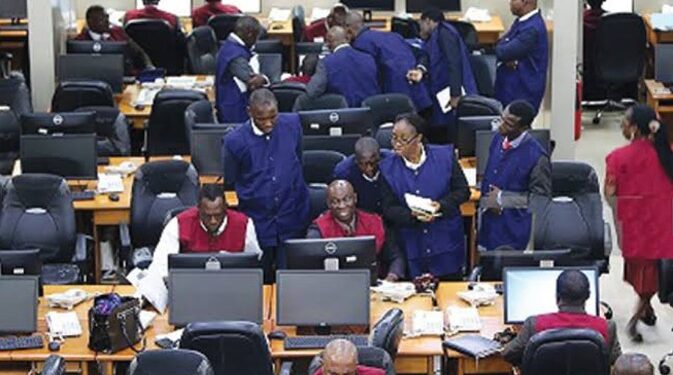Business Briefings
After N3bn Down the Drain, MAN and Oil Marketers Demand Sale of Refineries

The Manufacturers Association of Nigeria (MAN) says the refineries in Port Harcourt, Warri, and Kaduna are wasting government money and should be sold.
Crude oil refiners and marketers also support this, urging the government to scrap the refineries and use the money to support smaller modular refineries. They say the old refineries are now a burden.
MAN’s Director-General, Segun Ajayi-Kadiri, said the refineries are consuming large sums without producing anything. Over \$3 billion has already been spent trying to fix them, with no success.
Despite this, the government keeps funding the refineries, even though they haven’t worked for years. In 2021, \$1.5 billion was set aside for Port Harcourt, \$897 million for Warri, and \$586 million for Kaduna.
In total, N100 billion was spent on repairs in 2021 alone, with N8.33 billion going out monthly. Between 2013 and 2017, another \$396.33 million was spent on maintenance.
Yet, none of the refineries are working. Speaking on TV, Ajayi-Kadiri again urged the government to sell them, saying that when something belongs to everyone, no one takes responsibility.
He said Nigeria is full of hardworking people who can run these refineries better through private ownership and investment.
“Those refineries are simply draining the economy. It’s not fair to Nigerians. We need to be honest and encourage private investment,” he said.
He believes the refineries will work better if sold to private companies, which will also help stop corruption and waste.
“This is our natural wealth. Nigeria is one of the top crude oil producers, yet we still suffer fuel shortages. If private companies take over, theft and fraud will be harder,” he added.
He also said the refineries should be competing with the new Dangote refinery. “We were told one was working, but it’s now shut. The government should hand them over to people who can run them properly,” he added.
Eche Idoko, from the Crude Oil Refineries Association of Nigeria, told our reporter that the refineries should be sold, and the money used to support modular refineries.
He said billions have already been spent, yet the refineries still don’t work. He suggested the government could also invest in modular refineries and own shares in them.
“Looking at things now, is it wise to keep the refineries? They should be sold as scrap. The government can invest in working refineries instead,” he said.
He added that some investors were already interested in buying the refineries and that the government should stop managing them directly.
“These refineries are costing the government money every month. It’s better to sell them and invest the money in working refineries that will make a profit,” he said.
Clement Isong, the head of the Major Oil Marketers Association of Nigeria (MEMAN), also said the refineries should be handed over to experts who can manage them properly.
He said Nigeria needs more refineries working, not just the Dangote refinery, so there can be competition in the fuel market.
“We need working refineries. Experts should run them. This will create competition with Dangote,” Isong said.
When asked if NNPC is capable of running the refineries, Isong said political interference and the idea that NNPC must provide social support have made it hard to manage the refineries properly.
He said private companies can cut costs and staff when needed, but NNPC cannot because of politics and unions.
“This has been a major problem. NNPC can’t make tough decisions like a private business would,” he explained.
He also said the government finds it hard to control spending and run things efficiently, while private businesses do better in every country.
He added that private businesses like Dangote’s are not easily pressured, and that’s why they perform better. “No one can intimidate Dangote—he runs it like his own business,” he said.
Ibrahim Tajudeen, from Chapel Hill Denham, also supported MAN’s position. He said the refineries should either be fully sold to private investors or run as a public-private partnership.
He said the best plan is to sell them completely or at least bring in private partners who can manage them better and make them efficient again.
He said even selling part of them would help improve how they are run. He also pointed to Dangote’s success as proof that private investors can handle refineries better.
Former Zenith Bank economist, Marcel Okeke, also agreed the refineries should be sold. He said they’ve been wasting public money for too long.
He recalled that a previous attempt to sell them was cancelled by another government. Since then, billions have been spent with nothing to show.
“MAN is right. Selling the refineries is long overdue. Don’t waste more money fixing them—sell them as they are,” he said.
He said private buyers who understand the business can fix them, while the government should stay out of running businesses.
The Port Harcourt refinery has now been shut for maintenance for two months, although NNPC had said it would only take one.
Calls for selling the refineries became louder after the Port Harcourt unit, which handles 60,000 barrels daily, was shut down again just six months after reopening.
The Warri refinery, reopened in December, was also shut one month later. Now, the EFCC is investigating over \$7 billion spent on trying to revive these refineries.
The heads of these refineries have already been sacked, and the EFCC is now probing how \$1.5 billion for Port Harcourt, \$740 million for Kaduna, and \$657 million for Warri were used.
Former President Olusegun Obasanjo and former Vice President Atiku Abubakar have long called for the sale of the refineries.
Obasanjo once said even big oil companies like Shell refused to run the refineries when asked, because they knew the problems.
He also revealed that Dangote and others had paid \$750 million to buy the refineries before the deal was reversed by President Yar’Adua’s government.
In January, Obasanjo said more than \$2 billion has been wasted since then, yet the refineries are still not working.
He said if a company like Shell says no, it shows the refineries are a big problem. “If anyone says it’s working, then why are they relying on Dangote now?” he asked.
He ended with a Yoruba proverb, saying the government is lying about the refineries’ performance—just like a farmer who harvested 100 heaps of yam but claimed he planted 200.



